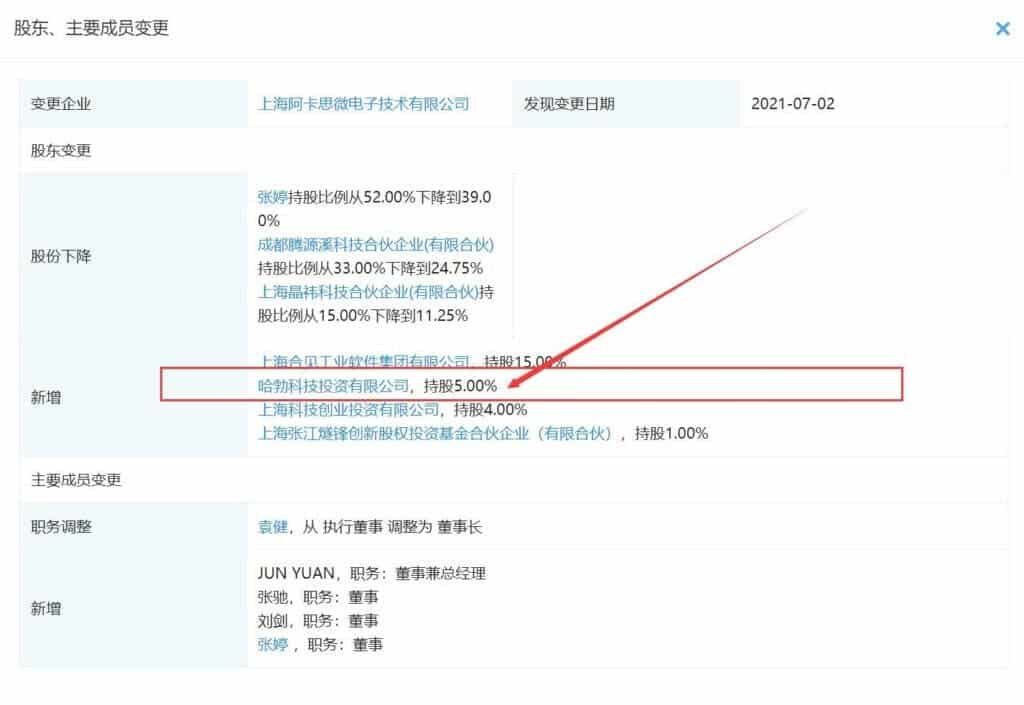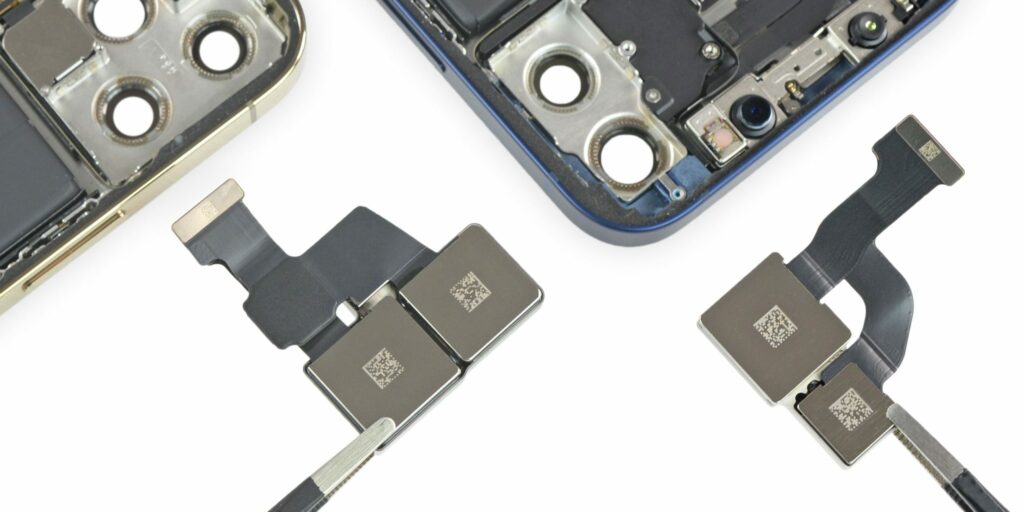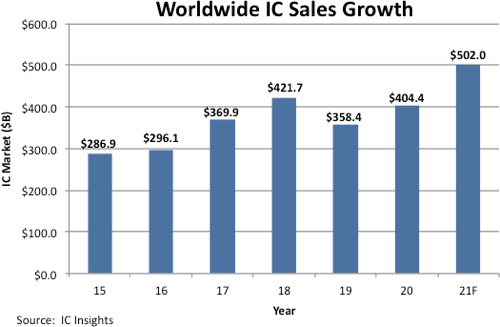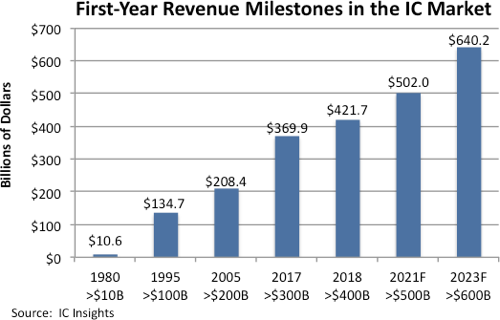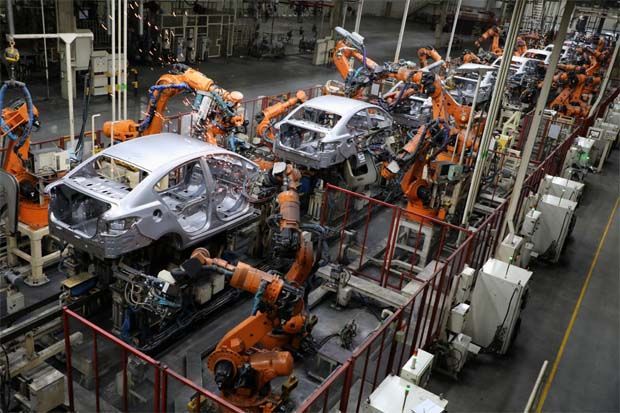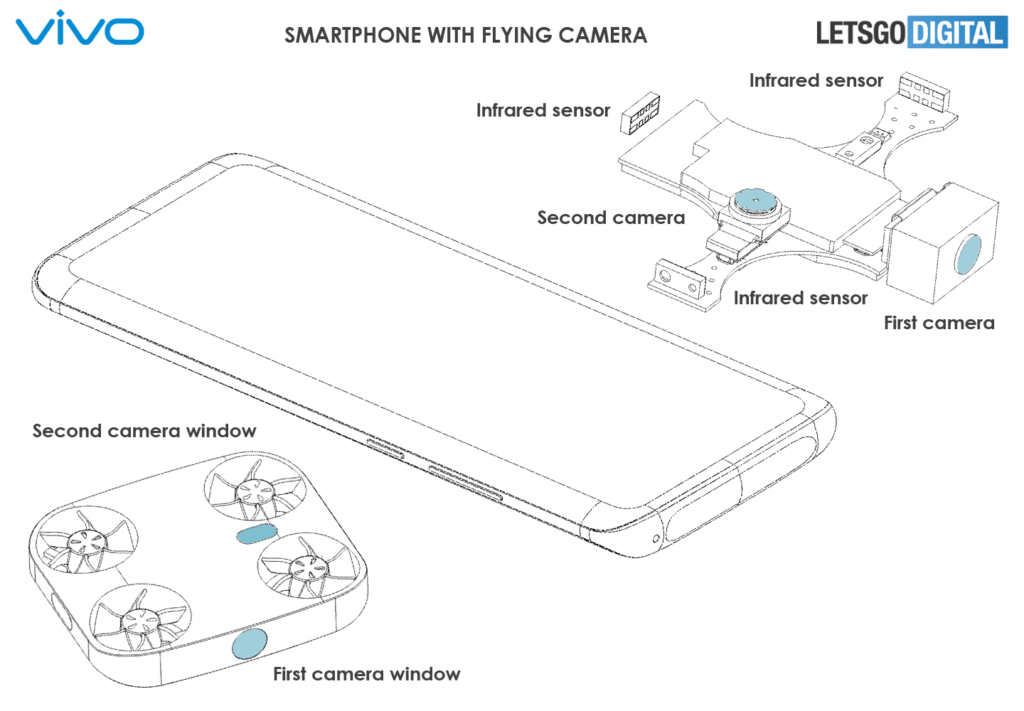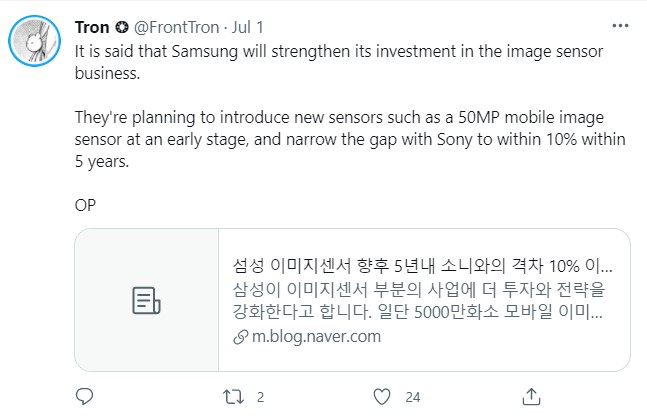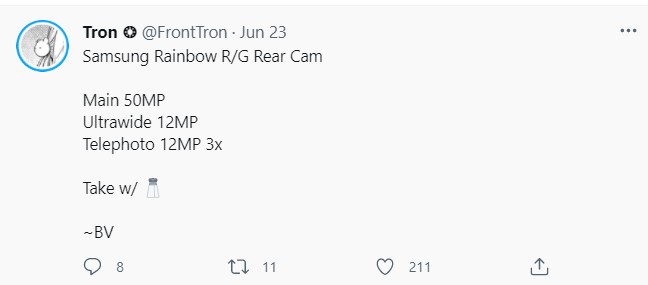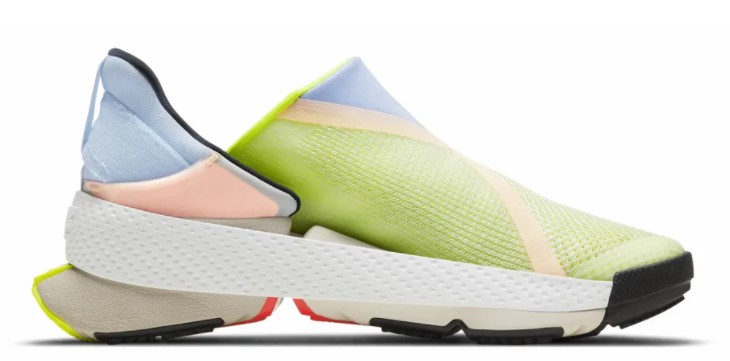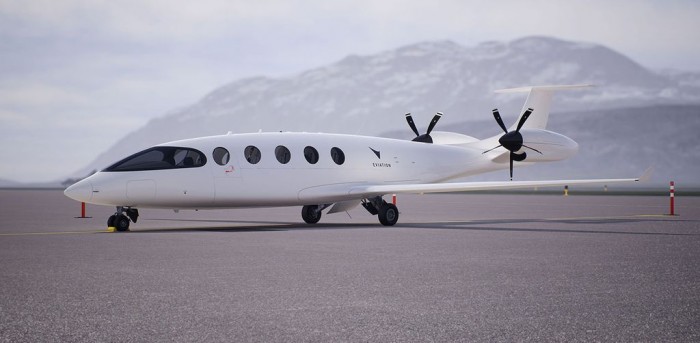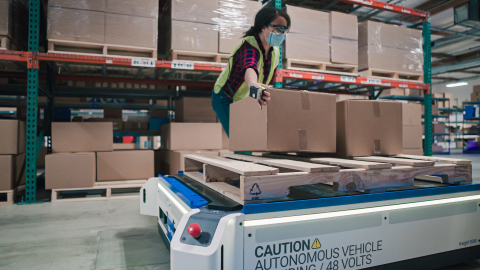
7-3 #Dryer : realme is allegedly partnering with a veteran camera company; Micron has predicted that the global computer chip shortage will continue at least into 2022; TSMC and UMC, and SMIC, have all stepped up their capacity expansions particularly for 28nm process; etc.
Semiconductor equipment maker MKS Instruments has announced that it will buy specialty chemicals group Atotech for about USD5.1B to expand its chip manufacturing capabilities. Atotech makes chemicals and equipment for printed circuit boards and semiconductors that are used in smartphones, appliances and heavy machinery. (Laoyaoba, MKS, Reuters)
Qualcomm new chief Cristiano Amon thinks that by 2022 his company will have just the chip for laptop makers. He believes his company can have the best chip on the market. He has indicated that they will go big in China, noting that U.S. sanctions on Huawei give Qualcomm an opportunity to generate a lot more revenue. (Reuters, Laoyaoba, Gizmo China)
Apple and Intel have emerged as the first adopters of Taiwan Semiconductor Manufacturing Co (TSMC) next-generation chip production technology ahead of its deployment as early as 2022. Apple and Intel are reportedly testing their chip designs with TSMC’s 3nm production technology with commercial output of such chips expected to start in 2H22. (My Drivers, Engadget, Nikkei, GizChina, CN Beta)
Shanghai Akasi Microelectronics Technology has a new shareholder, Hubble Technology Investment. However, Hubble Technology Investment is an associate of Huawei Investment Holdings to the tune of almost 100%. This means that Huawei is practically the owner of this company. Huawei is continuously expanding its involvement in the chip manufacturing industry. (GizChina, Sina, My Drivers)
China’s semiconductor industry is prepared for potential disruptions from Malaysia’s latest decision to extend COVID-19 lockdown indefinitely, according to Digitimes. The nationwide lockdown in Malaysia was due to expire on the Jun 2021 but has now been extended indefinitely as the number of COVID cases continue climbing. The lockdown has raised concerns about further constraints to global chip, as Malaysia is home to many semiconductor packaging and testing facilities. (Digitimes, press, Laoyaoba)
South Korea board maker BH will be supplying over half of the rigid flexible printed circuit boards (RFPCB) used in Apple’s new iPhones launching later 2021. BH will be supplying mid-50% of the board used, while Samsung Electro-Mechanics will supply 30%. Youngpoong Electronics will supply mid-10% of the boards used. RFPCB is used to connect the main board to the OLED panel. BH is supplying more to Apple in 2021 as Samsung Electro-Mechanics is planning to exit the business within the year. This means BH could be supplying up to 70% of the RFPCB used in Apple’s iPhones launching in 2022. Youngpoong could also see its supply increase by up to 30%. (9to5Mac, The Elec, Phone Arena)
Foundries including TSMC and UMC, and SMIC, have all stepped up their capacity expansions particularly for 28nm process, according to Digitimes. That is because automotive chips, display driver ICs, power management chips, IoT connection ICs, Wi-Fi 6 and other network chips all require 28nm manufacturing. Relevant chip suppliers have lined up in foundries to obtain more production capacity. (Digitimes, CN Beta)
Dutch semiconductor manufacturer 100% owned by China’s Wingtech Technology, Nexperia has revealed plans to invest USD700M to expand production capacity at its wafer fabs and assembly facilities in Europe and Asia. Nexperia allegedly plans to acquire the largest chip creator in the United Kingdom, Newport Wafer Fab (NWF) for GBP63M (USD87M). (My Drivers, My Drivers, CNBC, Tech Times, EE Power)
According to IC Insights, strong demand across the entire IC market in 2021 is projected to lift sales for the total IC market 24% and break through the USD500B plateau for the first time in history. The IC market is forecast to see continued growth in 2022 and again in 2023 when worldwide IC revenues are projected to exceed USD600B for the first time. (Laoyaoba, IC Insights)
Globally prevailing shortage ICs and increases in cost of components and materials are expected to negatively affect the automobile manufacturing industry in Malaysia, according to Malaysian Automotive Association (MAA) president Datuk Aishan Ahmad as indicating. The Malaysian government has extended the exemption of sales tax for locally-produced automobiles until the end of 2021 and this will reduce the impact of IC shortage and rising component and material cost on automakers. (Digitimes, press, The Star)
Semiconductor manufacturers are expanding capital spending in 2021 and beyond to help alleviate shortages. Many governments around the world are proposing funding to support semiconductor manufacturing in their countries. Semiconductor industry capital expenditures (CapEx) totaled USD113B in 2020, according to IC Insights. Projections for 2021 growth in 16%-23%. (SemiWiki, Sohu, Laoyaoba)
ZTE is allegedly planning to release another Axon 30 family member with an improved camera under display (CuD) technology. The company has reportedly made a breakthrough with the camera quality. (GSM Arena, My Drivers)
Packaging and testing manufacturer ChipMOS Technologies has obtained orders for OLED display panel driver ICs from a number of smartphone vendors, and it is expected that the 2H21 revenue contribution will be more significant. As for DDI, ChipMOS’ customers have signed a 2-year capacity reservation agreement with the company to meet the demand for smart phone TDDI (Touch and Drive Integration IC) in mainland China, which will take effect from 1Q21, and the total test capacity will increase by 10% compared with the previous 2H21 will not add new capacity. (Laoyaoba, CNYES, Yahoo)
vivo has patented a smartphone drone hybrid device. The drone, which slides out of the smartphone, packs four propellers and a dual-camera setup. Users can then fly the drone to shoot selfies or landscapes from above. (Android Authority, LetsGoDigital)
realme is allegedly partnering with a veteran camera company for its upcoming camera-centric flagship smartphone. realme will reportedly launch the GT camera flagship in partnership with Kodak. (Android Authority, Weibo, MySmartPrice)
System LSI, Samsung’s business arm that makes ISOCELL camera sensors, is planning to invest a huge sum of money to improve its product performance and widen its portfolio. The company could launch more advanced camera sensors over the next few years, including newer 50MP ISOCELL sensors to compete with Sony. It is being reported that Samsung is aiming to close the market share gap with Sony and place itself within a 10% difference from the Japanese firm with 5 years. (Android Headlines, Naver, SamMobile)
Dongguan-based YTOT has revealed that the company has been working closely with Huawei on the lens-related products. The annual production capacity of YTOT in 2020 is about 180-190 M units. Due to the impact of the pandemic in 1H20, the capacity utilization rate is low, and the annual utilization rate is about 73%. In 2021, the demand for optical lenses is strong, and YTOT will increase its production capacity month by month. As of May 2021, the production capacity is about 23M per month. YTOT is a high-tech enterprise specializing in the design, development, production and sales of optical lenses and other products. The products are mainly used in high-precision optical systems such as security monitoring equipment, vehicle cameras, and machine vision. (Laoyaoba, Yicai, Hexun)
Samsung Galaxy S22 / S22+, which are to be launched in 1Q22, reportedly will feature a 50MP main camera, a 12MP telephoto module with a 3x optical zoom lens and a 12MP ultrawide cam. (GSM Arena, Twitter, CN Beta)
Xiaomi is reportedly working on a flagship phone with a 200MP camera that is to be released in 2022. The company’s focus on cameras continues, as it recently released the Mi 11 Ultra, which is all about photography and filming.、 (Phone Arena, Weibo)
Sanjay Mehrotra, president and chief executive officer of Micron Technology, has predicted that the global computer chip shortage will continue at least into 2022, contributing to a “robust business environment” for the memory chip maker. (CN Beta, CNBC, Seeking Alpha)
ZTE executive, Lu Qianhao, has hinted at a 20GB RAM phone from the manufacturer. Some believe the device may incorporate the virtual RAM feature we have seen some manufacturers adopt. So the phone may have 18GB of RAM and 2GB of virtual RAM. (Gizmo China, Sohu, 163)
Western Digital has announced its second-generation UFS 3.1 storage solution for 5G smartphones. The iNAND MC EU551 mobile storage device is the first product built on Western Digital’s new UFS 3.1 platform. The device is designed to meet the JEDEC UFS 3.1 specification requirements and uses the latest Write Booster technology based on Western Digital’s 7th generation SmartSLCTM. It also features Host Performance Booster version 2.0, further combining the latest advancements in the standard. (CN Beta, Western Digital, Business Wire)
Micron has placed purchase orders for multiple EUV tools from ASML as part of a long-term volume agreement, increasing its fiscal year 2021 CapEx to above USD9.5B. The company will deploy EUV in limited layer count in 2024 time-frame with its 1-gamma node, and then it will broaden it to the 1-delta node with greater layer adoption. (CN Beta, The Register, Reuters)
Nokia and Lightspeed Broadband have announced they will roll out a 10Gbps symmetric fiber broadband to 1M homes and businesses in the East of England by the end of 2025. Lightspeed will connect the first 100K customers by the end of 2022. (Neowin, Nokia)
Facebook, Google, TikTok and Twitter have announced a bold package of commitments to tackle online abuse and improve women’s safety on their platforms at the UN Generation Equality Forum in Paris. (The Verge, Engadget, Web Foundation)
India has named Dell, Wistron’s ICT, Flex and Foxconn’s Rising Stars as its choice of global companies in a USD1B incentive plan to produce and boost exports of laptops, tablets and personal computers. Ten Indian companies are also selected, including smartphone maker Lava and Dixon, which makes TVs for Xiaomi in India. Under the plan, manufacturers get cash-backs of 1% to 4% of additional sales of locally made goods over 4 years, with 2019-2020 as the base year. In the next 4 years these companies are expected to produce INR1.61T (USD21.59B) of IT hardware. (Apple Insider, Reuters)
realme C21Y is announced in Vietnam – 6.5” 720×1600 HD+ v-notch, Unisoc Tiger T610, rear tri 13MP-2MP macro-2MP mono + front 5MP, 4+64GB, Android 10.0, micro-USB, rear fingerprint, 5000mAh, VND3.49M (USD150). (Gizmo China, GSM Arena, realme)
vivo V21 5G is launched in UK – 6.44” 1080×2400 FHD+ u-notch AMOLED 90Hz, MediaTek Dimensity 800U 5G, rear tri 64MP OIS-8MP ultrawide-2MPmacro + front 44MP OIS, 8+128GB, Android 11.0, fingerprint on display, 4000mAh 33W, GBP399. (GSM Arena, Gizmo China)
Nike has recently unveiled its 2021 Tokyo Summer Olympics Collection. The Nike Glide FlyEase will be equipped with the brand’s FlyEase technology, which means the wearer can have a hands-free experience when putting on and taking off the shoes. Shoe owners would just have to step into the shoe, and it would automatically snap back into place, thanks to its elastic cord that goes over the foot, giving it a snugger fit. (The Verge, Tech Time)
GE Lighting is rebranding its C by GE smart home line as “CYNC”. All products in the CYNC line aim to be easy to use and require no additional hub to operate. The new CYNC, powered by Savant app is a platform that includes enhanced personalization and seamless control of all past and present C by GE products, as well as present and future CYNC products. (Apple Insider, GE Lighting, Business Wire)
Volvo’s next generation of pure electric models, including the company’s first SUV on a completely new electric-only technology base, will run on Volvo Cars’ own operating system (OS), called VolvoCars.OS, for faster and more flexible development. Coupled with more frequent over-the-air updates to customer cars through their lifetime, the company’s aim is to make Volvo cars better every day. (Laoyaoba, Volvo, Green Car Congress)
The hybrid car-aircraft, AirCar, is equipped with a BMW engine and runs on regular petrol-pump fuel. Its creator, Prof Stefan Klein, has said it could fly about 1,000km, at a height of 2,500m, and had clocked up 40 hours in the air so far. (CN Beta, BBC, Motor1, PR Newswire)
Electric-plane startup Eviation Aircraft has unveiled the production version of its Alice commuter aircraft, saying the pioneering model is set for an inaugural flight in 2H21 ahead of service entry in 2024. The Alice will also be bigger than such eVTOL planes, carrying nine passengers for 650 miles (1,046km). The two propellers, which are mounted on pods near the tail, are powered by Magnix 650 electric motors. (CN Beta, Bloomberg, CNET)
Amazon has announced that it plans to develop new technology for its autonomous delivery vehicles in Helsinki, Finland. Amazon is setting up a new “Development Center” to support Amazon Scout, which is a fully electric autonomous delivery robot that is being tested in four U.S. locations. (CN Beta, CNBC, CNET, Amazon)
Zebra Technologies, an innovator at the front line of business with solutions and partners that deliver a performance edge, has announced it intends to acquire Fetch Robotics, a pioneer in on-demand automation for USD290M. Fetch’s Autonomous Mobile Robots (AMRs) are used for optimized picking in fulfillment centers and distribution centers, just-in-time material delivery in manufacturing facilities and automating manual material movement in any facility. (TechCrunch, Business Wire)


